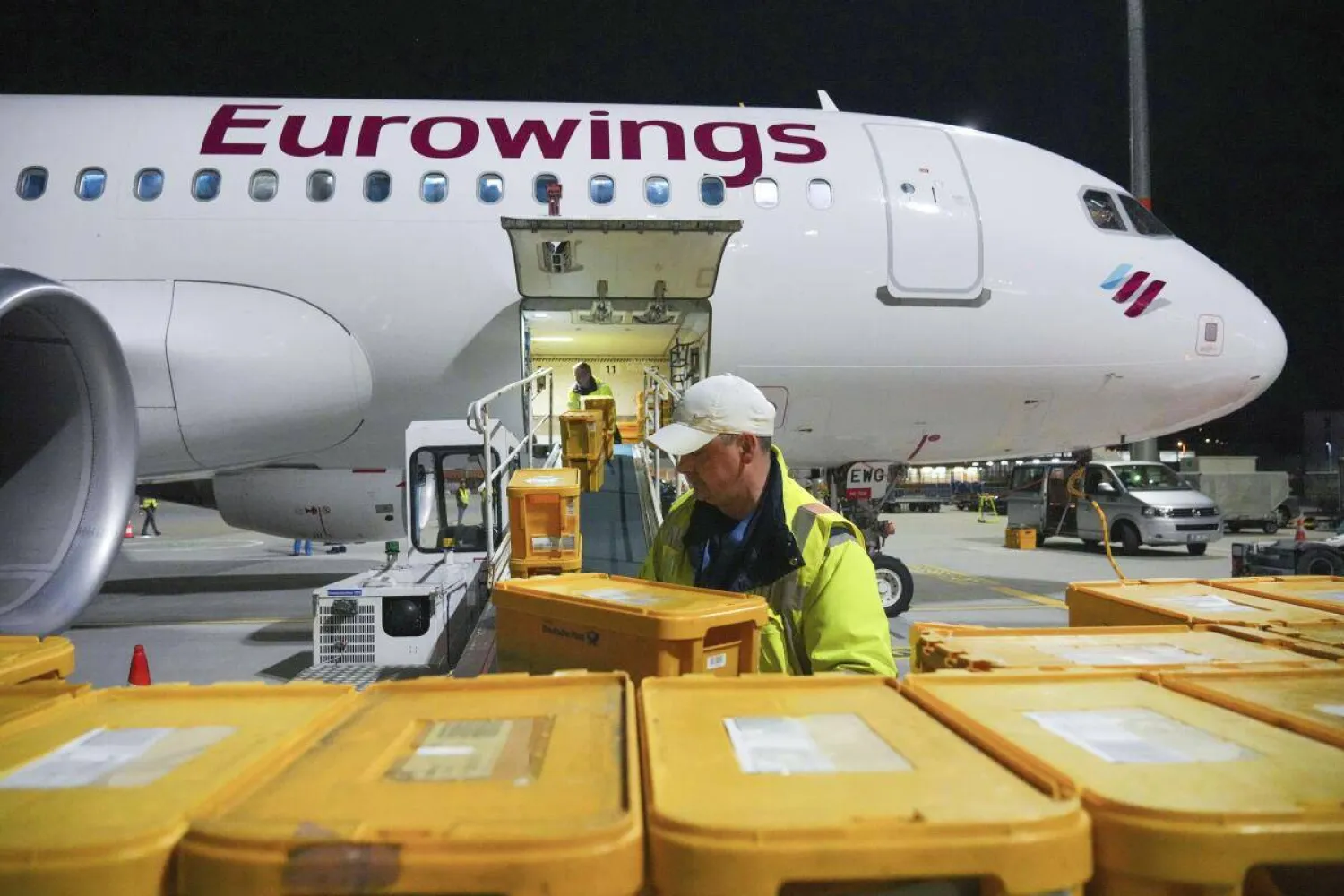Germany's main national postal carrier on Thursday stopped using domestic flights to transport letters after nearly 63 years, a move that reflects the declining significance of letter mail and allows it to improve its climate footprint.
Deutsche Post said the last planes carrying letters between northern and southern Germany, operated by Lufthansa unit Eurowings and Tui Fly, flew overnight on the Stuttgart-Berlin, Hannover-Munich and Hannover-Stuttgart routes, the Associated Press said.
The company said letters between those destinations will now be transported by road, allowing the company to reduce transport-related carbon dioxide emissions on the routes by over 80%.
“In times of climate change, airmail for domestic letters within Germany can no longer be justified — also because there is no longer the same urgency associated with letter mail as in decades past,” Marc Hitschfeld, chief operations officer of parent company DHL Group's German mail and parcel division, said in a statement.
Draft legislation approved by the German Cabinet in December, which still needs parliamentary approval, is set to reduce pressure on Deutsche Post to deliver letters quickly, allowing it to cut costs.
At present, the mail service is supposed to deliver at least 80% of letters on the working day after they are mailed. Under the planned new rules, it will have to deliver 95% by the third working day.
German domestic mail flights started in September 1961. Both the volume of mail carried by air and the number of destinations served have declined drastically since the mid-1990s.
German Mail Service Stops Using Domestic Flights to Transport Letters after Nearly 63 Years

WISAG employees load a Eurowings Airbus A320-214 bound for Stuttgart with plastic boxes full of mail, at Berlin Brandenburg Airport, in Schönefeld, Germany, Thursday, March 28, 2024. (Soeren Stache/dpa via AP)

German Mail Service Stops Using Domestic Flights to Transport Letters after Nearly 63 Years

WISAG employees load a Eurowings Airbus A320-214 bound for Stuttgart with plastic boxes full of mail, at Berlin Brandenburg Airport, in Schönefeld, Germany, Thursday, March 28, 2024. (Soeren Stache/dpa via AP)
لم تشترك بعد
انشئ حساباً خاصاً بك لتحصل على أخبار مخصصة لك ولتتمتع بخاصية حفظ المقالات وتتلقى نشراتنا البريدية المتنوعة







